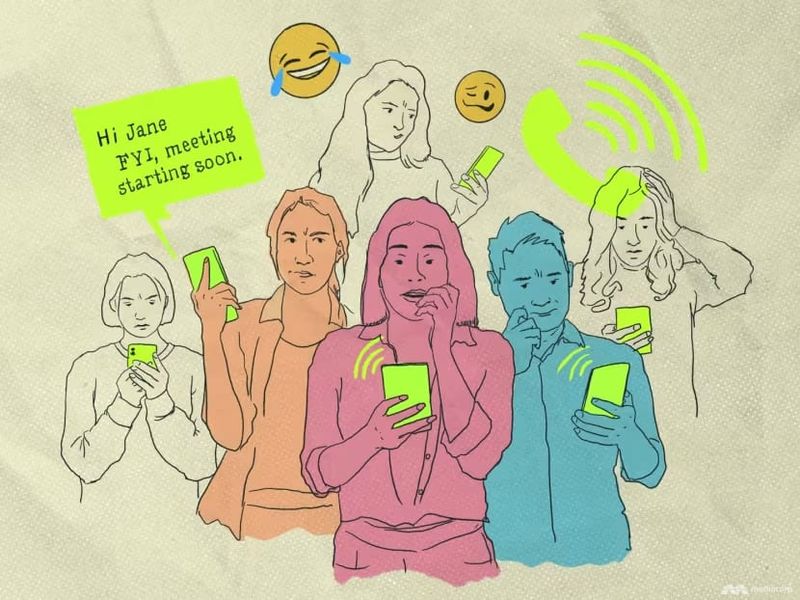Millennials have undeniably influenced the cultural landscape of America, ushering in habits that have become the new norm. This generational shift has been marked by a focus on well-being, flexibility, and technology, driving changes in everyday life that reflect broader societal values.
From redefining workspaces to prioritizing mental health, these habits reveal the evolving priorities of a generation poised between tradition and innovation.
1. Prioritizing Mental Health in Everyday Decisions
In recent years, millennials have championed the importance of mental health. This focus has transformed everyday choices, from spending relaxed weekends to opting for work environments that prioritize well-being. The once-taboo subject of mental health is now a mainstream conversation, driven by millennials’ openness.
This shift is seen in the rise of wellness apps, meditation practices, and a greater emphasis on work-life balance. By normalizing these discussions, millennials have paved the way for more supportive and understanding communities.
Consequently, mental health is no longer a sideline topic but a significant part of American life, influencing policies and personal lifestyles alike.
2. Normalizing Working Remotely (From Anywhere)
Remote work, once an exception, is now a staple in modern employment, largely due to millennials’ pursuit of flexibility. The desire to work from diverse locations—whether a local coffee shop or a foreign city—has redefined productivity.
Cloud-based tools and virtual meetings have made this transition seamless. As a result, companies have adapted, recognizing the benefits of a dispersed workforce. For millennials, this means balancing personal passions with professional responsibilities.
Work is no longer confined to a cubicle but can be integrated into an adventurous lifestyle, showcasing a generational shift towards valuing experiences over traditional constraints.
3. Treating Pets Like Children
Pets have become surrogate children for many millennials, reflecting a shift in family dynamics. This demographic often lavishes attention and resources on their furry companions, mirroring parental behaviors.
Pet-friendly spaces and services have flourished, from restaurants to travel accommodations. This trend underscores a broader cultural acceptance of pets as family members.
For millennials, these beloved animals offer companionship and emotional support, fulfilling roles traditionally reserved for offspring. As pet ownership rises, so does the market for specialized pet care, further integrating pets into daily life.
4. Questioning the 9–5 Schedule
The rigid 9–5 workday has been challenged by millennials who value flexibility and autonomy. This critique stems from a desire for productivity that aligns with individual rhythms rather than outdated norms.
Flexible schedules allow for personal growth and fulfillment, catering to unique lifestyles. Millennials’ push for change has influenced companies to offer alternative working arrangements like flex-time and compressed workweeks.
This paradigm shift supports a healthier work-life balance, reflecting a growing understanding that productivity isn’t bound by clock hours but can thrive in diverse environments.
5. Ditching Cable in Favor of Streaming Everything
Cable television’s decline has coincided with the rise of streaming services, a trend spearheaded by millennials. This generation embraces the convenience and variety offered by platforms like Netflix, Hulu, and Amazon Prime.
Streaming provides on-demand access to a vast array of content, catering to diverse tastes and schedules. The traditional TV set has been replaced by mobile devices and smart TVs.
With this shift, millennials have not only altered how entertainment is consumed but also influenced the industry to innovate, leading to a more personalized and flexible viewing experience.
6. Replacing Bars With Coffee or Book Shops as Social Spaces
The social hub has evolved from bustling bars to serene coffee shops and book stores, particularly among millennials. These settings provide a quieter, more intimate space for connection.
Cafes and book shops offer an atmosphere conducive to meaningful conversations, study sessions, and creative collaboration. This preference reflects a shift towards mindfulness and quality interaction.
By redefining social spaces, millennials have created environments where both relaxation and productivity thrive, showcasing a departure from traditional nightlife in favor of diverse social experiences.
7. Bringing Therapy Talk Into Everyday Conversation
Therapy, once a private matter, has entered everyday discourse thanks to millennials. This openness fosters a culture of empathy and understanding, breaking down stigmas around mental health care.
Discussions about therapy are infused into casual settings, from dinner tables to social media platforms. This transparency encourages others to seek help without shame.
By integrating therapy talk into daily life, millennials highlight the importance of mental well-being as a collective concern, strengthening community bonds and promoting holistic health.
8. Reviving Houseplants as Emotional Support Tools
Houseplants have experienced a renaissance as emotional support tools, particularly among millennials. Amid urbanization and digitalization, these green companions provide a soothing, natural connection.
Tending to plants offers a meditative escape from the hustle and bustle, enriching mental well-being. Millennials have embraced this hobby, transforming living spaces into indoor gardens.
This trend not only enhances aesthetics but also reflects a desire for sustainability and self-care. Houseplants symbolize the millennial commitment to nurturing both their environment and inner peace.
9. Prioritizing Side Hustles Over One Traditional Job
The gig economy has thrived under millennials, who often prioritize side hustles over one stable job. This entrepreneurial spirit reflects a quest for financial security and personal fulfillment.
Side hustles offer flexible income streams, allowing individuals to explore diverse interests. This trend challenges the traditional career path, emphasizing creativity and independent success.
For millennials, a portfolio career means balancing multiple roles, fostering innovation and adaptability within the workforce. This dynamic approach to employment continues to reshape economic landscapes.
10. Canceling Plans Without Shame
Canceling plans, once fraught with guilt, has been redefined by millennials who value authenticity over obligation. This generation prioritizes self-care and mental space, leading to more honest social interactions.
The acceptance of last-minute cancellations has fostered a culture where individuals feel empowered to prioritize their well-being. This shift encourages healthier relationships rooted in transparency.
Millennials’ approach to social commitments reflects a broader understanding of personal boundaries, promoting a lifestyle that balances social obligations with self-awareness and respect.
11. Embracing “No” as a Complete Sentence
“No” is now a full sentence, thanks to millennials who champion clear communication and assertiveness. This straightforward expression emphasizes boundaries and personal agency.
In professional and social contexts, embracing “No” fosters respect and reduces misunderstandings. Millennials’ approach reflects a commitment to authenticity and integrity in interactions.
By normalizing this assertiveness, they contribute to healthier environments where consent and mutual respect are prioritized. This cultural shift underscores a movement towards empowerment and self-assurance.
12. Spending on Experiences, Not Just Stuff
Millennials value experiences over material possessions, a preference that has reshaped consumption patterns. This focus on experiential living reflects a desire for meaningful connections and personal growth.
Travel, adventures, and unique activities take precedence over accumulating physical goods. This trend emphasizes living in the moment and creating lasting memories.
By prioritizing experiences, millennials challenge traditional consumerism, highlighting a shift towards sustainability and mindful living that resonates across generations.
13. Making Meal Kits a Weekly Norm
Meal kits have become a staple for millennials seeking convenience and culinary exploration. These pre-packaged solutions offer a balance of ease and creativity in the kitchen.
With busy schedules, meal kits provide a simple way to enjoy home-cooked meals without the hassle of planning or shopping. This trend supports diverse dietary preferences and sustainable practices.
For millennials, meal kits represent a fusion of practicality and innovation, enhancing daily life by bringing gourmet experiences into the comfort of home.
14. Relying on Reviews for Everything
Reviews have become a guiding force for millennials, influencing decisions from dining to technology purchases. This reliance on peer feedback fosters an informed consumer culture.
Online platforms and social media amplify the voices of fellow buyers, creating a community-driven marketplace. Millennials trust reviews to navigate the overwhelming choices available today.
This behavior underscores a demand for transparency and quality, as businesses strive to meet the expectations set by real customer experiences. Reviews empower millennials to make confident, informed choices.
15. Normalizing Texting Over Calling
Texting has overtaken calling as the preferred communication method for millennials. This shift reflects a desire for convenience and efficiency in staying connected.
Texting allows for quick exchanges and multitasking, fitting seamlessly into fast-paced lifestyles. It offers a non-intrusive way to maintain relationships without the pressure of real-time conversation.
For millennials, texting represents a balance of connection and autonomy, illustrating a broader trend towards digital communication that accommodates diverse social dynamics.
16. Turning “Let’s Normalize This” Into a Movement
The phrase “Let’s normalize this” has become a millennial mantra, advocating for societal acceptance and progress. This movement seeks to challenge outdated norms and embrace diversity.
By spotlighting various issues—from mental health to gender identity—millennials aim to foster inclusivity and empathy. This proactive stance encourages open dialogue and change.
Through social media and community activism, the normalization movement reflects a commitment to building a more understanding and cohesive society, driven by shared values and collective action.

















